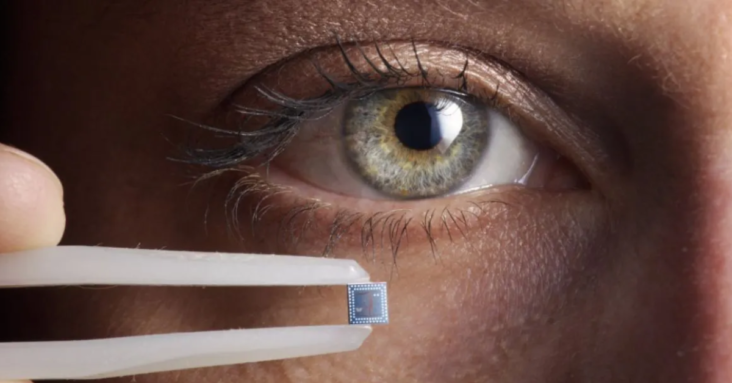
social security number. As such, many governments want all citizens’ details to be stored on one card to make the work process easy. All of a person’s details would be viewed on one card with just one click. Many Swedes already use implanted RFID chips to open doors, pay cashless transactions, present medical records, access concert venues, and ride on public transportation.
Many people worldwide have microchip implants, primarily in their hands but an increasing number have them in their teeth. Belgian scientists had started to embed RFID chips into teeth to show how detailed personal information can be stored. For them, the ID tag is intended to allow forensic teams to retrieve a person’s name, nationality, date of birth, and gender, allowing identification after, say, a natural disaster. Today, RFIDs are already embedded in credit and debit cards, in food packaging and are widely used the manufacturing and sale of clothing.
Microchip implants have already been used as vaccine passports, at least in Sweden. Another method of standardising vaccine record keeping is through the use of a new dye, consisting of nanocrystals called quantum dots, which can remain for at least five years under the skin, emitting near-infrared light that can be detected by a specially equipped smartphone. Interestingly, this research was funded by the Bill and Melinda Gates Foundation. In 2020, ID2020 and its partners launched a program to provide digital IDs with vaccines in Bangladesh. ID2020 is partnering with the United Nations with the initiative being sponsored by the vaccine alliance GAVI (Bill Gates). Bill Gates, through his ID2020 initiative, is keen to impose digital IDs on every human who has yet to have one – that’s around 1 billion people. Will that be via chips or nanodots, one wonders? He argues digital IDs are not a privacy infringement.
With respect to vaccines, the main advantage is to improve vaccine coverage in developing nations as 89 percent of children and adolescents do not have identification to monitor vaccine uptake. Livestock all over the world is currently chipped for food traceability and this is considered very appropriate given governments’ “food safety” policies.
Regarding foods, and especially GMO foods, traceability is a key issue. There is an initiative to spray your food with genetically modified spores containing custom DNA sequences to trace it through the global supply. Such technologies have yet to be adequately tested for biocompatibility or effects on our health.
Arguments for the Use of RFID Technology in Humans
The supporters of human-implanted RFID chips believe that such chips will allow governments to locate fugitives, witnesses of crimes, and missing persons. The authorities in Indonesia’s Irian Jaya province even discussed using implanted RFID chips to monitor persons infected with HIV; the advantages for them are not only in monitoring.
The WEF forum writes: “Drugs often show unwanted effects because they affect multiple biological processes simultaneously. Someone on long-term medication might want to try an implant that sends very precise electrical or optical pulses instead”. The further advantages it states are, e.g. for patients suffering with urine loss, in which a “small stimulation device tucked away in the pelvic area constitutes a more elegant and comfortable solution than wearing incontinence pads”.
Other implants can influence the nerves of the peripheral nervous system or the information highways that connect the spinal cord and brain to organs and limbs. “Electrical stimulation of the vagus nerve, the superhighway that originates in the brain, is rumored to be a miracle therapy for treatment-resistant depression, an ever-growing problem”.
In the eyes of the WEF: “Technology has always had the potential to transform society and improve our daily and professional lives; so does augmentation technology. It goes hand in hand with an evolution from health care to ‘well care,’ where it’s not just about solving an impairment anymore; it’s about technology that supports you and improves your overall quality of life”. How safe these devices are from being hacked or how they can be used for actual manipulation of the organs they are in contact with (i.e., brain, heart, etc.) needs to be discussed openly.
Intentions of the World Economic Forum (WEF)
But are the intentions of the WEF truly centred around the new medical potentials which are supposed to transform our lives for the better? Earlier this month, the Israeli WEF advisor, Yuval Noah Harari, proclaimed publicly in an interview with Chris Anderson, the head of TED, that the global elite: “[We] just don’t need the vast majority of the population” and derided humanity as unintelligent and worthless.
On another occasion, Harari pondered how to employ “useless people” after they have been replaced by artificial intelligence (AI) and suggested keeping them in a state of permanent sedation on a diet of drugs and video games. “In time, people will be walking around with biometric sensors on, or even in, their bodies, allowing Google or Facebook or the Chinese government or whoever to monitor what’s going on in their bodies constantly…,” senior WEF adviser Yuval Harari said in a recent interview. Harari dismissed concerns about privacy and other fundamental human rights that his plan for 24-hour biometric surveillance would nullify. He wrote that people simply “need to trust science, the authorities, and the media” and claimed that “politicians” who encouraged their followers to think for themselves were “authoritarian”.
Do statements like these really increase our trust in authorities and their motives?
Concerns About RFID Technology
The main concern around this technology is however, not only the fear of an Orwellian surveillance state. Even the US Food & Drug Administration (FDA) discussed the potential risks to health associated with human chipping in a document published in 2004: “The potential risks to health associated with the device are adverse tissue reaction; migration of implanted transponder; compromised information security; failure of an implanted transponder; failure of inserter; failure of the electronic scanner; electromagnetic interference; electrical hazards; magnetic resonance imaging incompatibility; and needle stick”.
The document also states that introducing human RFID chips will confront us with challenging legal, security, medical, ethical, and religious questions.
RFID and Cancer
In six studies published in toxicology and pathology journals between 1996 and 2006, researchers found a causal link between implanted microchip transponders and cancer in laboratory mice and rats. The paper reviewed literature published in oncology and toxicology journals between 1990 and 2006 addressing the effects of implanted radio-frequency (RFID) microchips on laboratory rodents and dogs. Eleven articles were reviewed, with eight investigating mice and rats and three investigating dogs. In all but three of the articles, researchers observed that malignant sarcomas and other cancers formed around or adjacent to the implanted microchips. In nearly all cases, researchers concluded that the microchips had induced the cancers.
The authors concluded that given the clear, causal link between microchip implants and malignant tumours in laboratory rodents and dogs, they strongly recommended that policymakers reverse all policies that mandate the microchipping of animals under their jurisdiction or control. These findings raised a red flag about the continued use of microchips in animals and humans.
As the Associated Press reported, this concern is shared by some of the nation’s most respected cancer researchers. “There’s no way in the world, having read this information, that I would have one of those chips implanted in my skin or in one of my family members“, Dr. Robert Benezra, head of the Cancer Biology Genetics Program said at the Memorial Sloan-Kettering Cancer Center in New York. He added, “Given the preliminary animal data, it looks to me that there’s definitely cause for concern“. The involved researchers believe that further microchipping of pets or human beings should be immediately discontinued.
Several other studies have also confirmed the findings and conclusions (Lewan, 2007; Le Calvez, 2006; Elcock, 2001; Blanchard, 1999; Palmer, 1998; Tillmann, 1997; Vascellari, 2006; Vascellari , 2004).
RFID and Microbiome
What happens to our microbiome when constantly exposed to RFID technology needs urgent attention. We know that bacteria, like Staphylococcus aureus create biofilms and communicate using frequencies in the range of Wi-Fi and 5G C-band. Experiments found that notable radiation is observed in the 3-4 GHz band from the Staphylococcus aureus biofilms, so external frequencies interfere with our inherent commensal communication systems.
In which way this could happen via RFID technology is yet to be explored.
RFID and Transhumanism
In summary, Flores describes transhumanism as an international movement claiming that adding technological implants and inserting DNA will improve human beings. After Flores however, the transhumanists conceal two rather disturbing subjects: the potential use of technological implants as a weapon against the citizen and the method used to develop their dangerous projects, suspected to be illicit human experiments conducted worldwide. Technological implants like brain nanobots might cause a loss of mind control, and thus, the carriers could be controlled by others and lose their autonomy; they could be spied on permanently with the cerebral internet and lose their privacy; their memory could be deleted, and they could lose their identity. As such, the humans who carry technological implants could be permanently spied on and mentally controlled, losing their identity and becoming enslaved at the service of transnational companies and economic powers.
An objective analysis reveals that transhumanism is nothing more than an intellectual deception leading to digital fascism. In such a society, a millionaire elite would govern citizens with technological implants, who would become digitally enslaved people at the service of an oligarchy.
Conclusion
Considering all multileveled risks in using RFID in living organisms, especially the clear connection to cancers, makes the arguments of the promoters of this technology more than questionable in their noble motives. Over the last two years, countless surveillance cameras have been set up in almost all countries on this planet. 5G has been pushed without much public debate on its safety. Covid apps have made tracking citizens as easy as possible, and face scans and electronic fingerprint detection devices have appeared in most airports worldwide.
It would be naive not to consider the prime motive of RFID chipping of humans to be a part of this surveillance operation. Our citizens must demand an immediate public debate on the motives and safety of this technology. Otherwise, we will witness a descent into a complete Orwellian global government with a gradual loss of our health and fundamental human rights. Considering the safety data, we currently have available, a moratorium should be called, and further research conducted before allowing more humans to be chipped with this technology.
The original version of this article was published in 2021: https://www.anhinternational.org/news/guest-article-the-next-step-to-transhumanism/
Disclaimer: The views expressed in this submission are Christof’s own and do not necessarily represent the World Council for Health.



